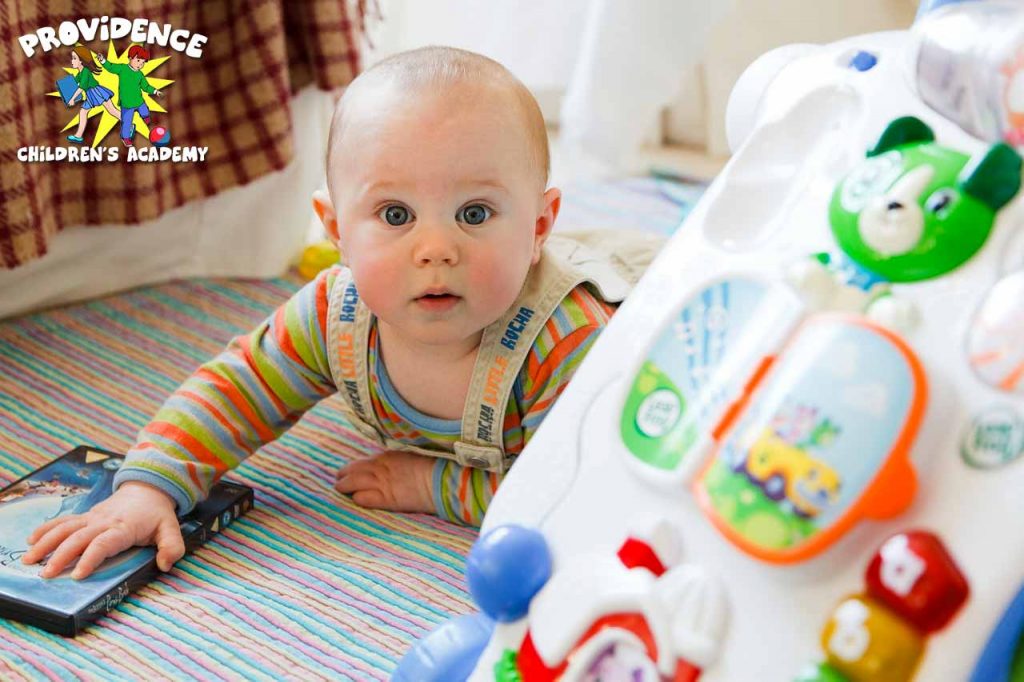
Play is about more than just having fun, it’s also an easy opportunity to teach your child learning skills, vital for their maturity and development. For infants between 0-2 years old, there are many games that can be played to encourage their development and social interaction. As a parent, it’s important to stimulate your child at home, while choosing the right academy that has dedicated and friendly caregivers to stimulate your child at school, especially since play has an important role in infant education.
Why Is Play Important For Infants?
Any activity that your child enjoys and finds fun, regardless of whether it is organized or spontaneous, is considered to be play. It’s important that your child is surrounded by age-appropriate infant development activities that are closely supervised by attentive caregivers at school and by you at home.
From birth to 3 months old, your child will be making movements with their legs, feet, arms and hands. This is the stage where a child learns about their body and how it moves. This type of play is sometimes referred to as unoccupied play.
For smaller infants, there are many tummy-orientated games that can encourage their handiwork. Things like stacking blocks and pushing items are engaging and instrumental and highly beneficial in their development. The solitary play (which encompasses birth to 2 years old) is the stage when the child plays alone, and are usually not interested in group play.
And finally, at 2, your child is likely to watch other children playing, observing others and what they do. Play teaches children important skills which they learn and develop at a young age, and use for the rest of their lives. This is why these formative years are so important. It helps with fine-tuning their motor skills and their dexterity.
What Are The Best Types Of Games For Infants?
The best types of games should encourage problem-solving, creativity and imagination. Some age-appropriate games include:
- Grasping and letting go of things, such as rings, blocks and rattles.
- Turning objects in their hands like brightly colored balls.
- Stacking blocks and rings.
- Moving toys through objects.
It’s worth noting that children who express creativity in safe environments are able to learn about their interests, emotions and how to adapt to situations.
Where Else Can Encourage Play?
When your child begins to eat regular food, it’s a good idea to give them small finger food to encourage their fine motor skills, getting used to touching food and understanding where their mouths are.
Another way to aid in their development is during bath time. As most children love baths, this an ideal space to encourage play. Toys and containers that they can fill up and play with lets your child use their hands in exploration. Bubbles are also a fun and exciting way for your child to play and use their arms.
Music is also another great tool that your child’s caregiver can use to further their development. Rattles, drums and other noise-makers can make learning fun. Singing nursery rhymes and other songs helps children to babble, make sounds and eventually talk.
Reading time is an important tool that helps your child pick up vocabulary and explore their imagination. You as a parent and their caregiver should be reading stories to your child, especially interactive ones for younger children (such as those with pull out parts, textures and sounds). All of these aspects make reading more rewarding, fostering a love of stories from a young age.
For more information about how you can encourage your child’s development and the ways in which they can benefit from games, as well as finding out about why Providence Children’s Academy has the best to offer your child, call us now at 954-570-6914.
